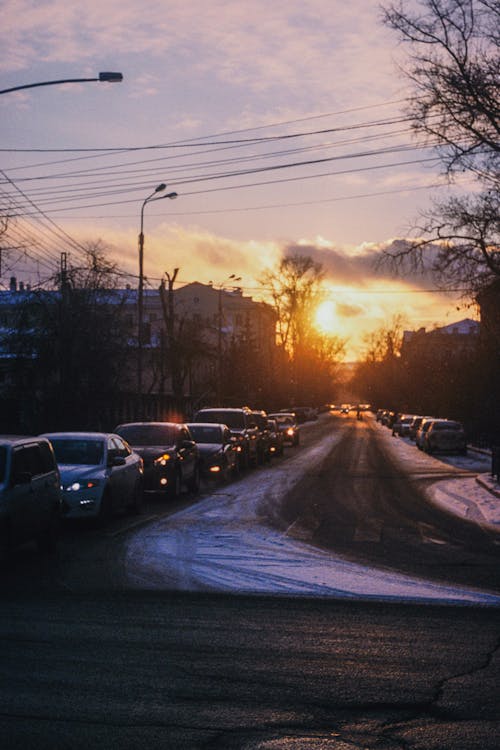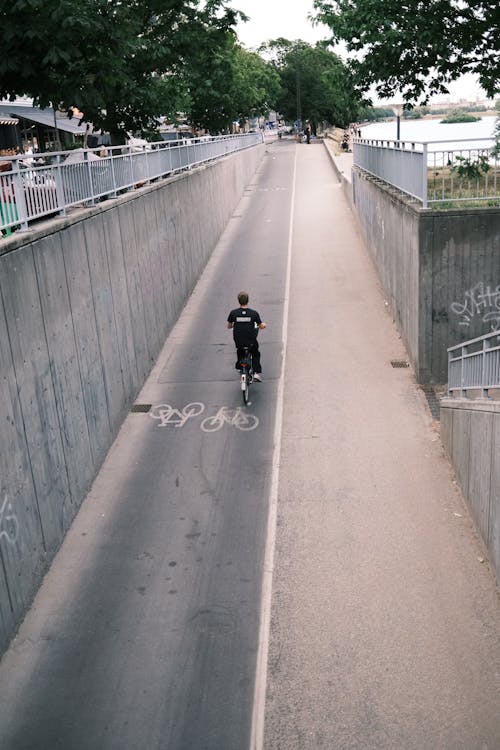Door number 1 - December 1st, 2023
Welcome to the SUSHI BIKES Advent calendar. We will introduce you to a topic here every day and share exciting information with you. Everything is of course related to our sustainability initiatives. But why are we actually doing all this?
1.1 degrees. This is exactly how many degrees we humans have already heated our planet compared to 1890. Climate change refers to the long-term increase in average temperatures on Earth. This increase in temperature obviously has an impact on our environment. Climate change is leading, among other things, to a rise in sea levels, more extreme weather conditions and the habitats of animals and plants are also being negatively affected.
______________________________________________________
Door number 2 - December 2nd, 2023
Climate change caused by global warming has many different causes. But the main reason is the so-called greenhouse gas effect. The Intergovernmental Panel on Climate Change, i.e. the IPCC, estimates global warming caused by the greenhouse gas effect at 1-2 degrees. The greenhouse effect describes how greenhouse gases, such as carbon dioxide (CO2), form a kind of blanket around the earth. This blanket prevents the heat radiated from the Earth's surface from escaping into space. This causes the temperature on earth to rise. It is important to understand that the greenhouse effect itself is not necessarily negative. It is a natural process that makes life possible on Earth by keeping the temperature at a comfortable level for us. However, the concentration of greenhouse gases in the atmosphere has increased so much over the last 150 years that global warming is simply too extreme.
______________________________________________________
Door number 3 - December 3rd, 2023
1.07 degrees. This is the part of global warming that is attributed to humans. The main reason for this is the emission of greenhouse gases. Human activities such as burning fossil fuels and deforestation release large amounts of greenhouse gases, such as carbon dioxide (CO2), into the atmosphere. This can be seen, on the one hand, from the fact that the concentration of greenhouse gases is significantly higher than in the last 2 million years. On the other hand, CO2 released through combustion is different from that released through natural processes.
______________________________________________________
Door number 4 - December 4th, 2023
Approximately 3.3 to 3.6 billion people live in areas that are particularly vulnerable to climate change. The vulnerability of humans and ecosystems is closely linked. Increasing extreme weather and climate events are leaving millions of people facing acute food insecurity and having their water supplies compromised. The most severe impacts were observed in many parts of Africa, Asia, Central and South America, the least developed countries, island nations and the Arctic. Global impacts are also being felt among indigenous peoples and low-income households.
______________________________________________________
Door number 5 - December 5th, 2023
The glaciers in Switzerland have retreated by a full 10% in the last 2 years. That's the same as between 1960 and 1990, i.e. in 30 years. The retreat of glaciers and the loss of ice surfaces in the Arctic are worrying consequences of climate change for nature and ecosystems. Both phenomena illustrate how climate change is leading to profound changes in the environment. The global retreat of glaciers has major impacts on water supplies and the diversity of animal and plant species. The loss of ice in the Arctic threatens the existence of polar bears and seals, animals that depend on ice. There is an urgent need to take measures to protect and preserve nature and ecosystems in order to counteract the negative consequences of climate change. The effects of climate change on nature and ecosystems are diverse. They endanger biodiversity and the stability and resilience of natural habitats.

______________________________________________________
Door number 6 - December 6th, 2023
20%: This is the transport sector's share of total greenhouse gas emissions in Germany. This makes the transport sector the third largest cause of greenhouse gas emissions in Germany, behind energy and industry. These emissions arise primarily from road traffic, including cars, trucks and motorcycles, as well as from air and shipping traffic. The main cause of emissions are fossil fuels such as gasoline, diesel and kerosene.
______________________________________________________
Door number 7 - December 7th, 2023
9%: Greenhouse gas emissions in the transport sector have decreased by this percentage since 1990. This is the lowest value compared to all other sectors in Germany. The increase in mobilized private transport in particular has contributed to this. There are simply a lot more cars on the roads than before. Since most of these cars are still powered by fossil fuels and spend a long time on the road, it will be particularly difficult to quickly reduce emissions in the transport sector. The Federal Environment Agency proposes many different measures. This includes the electrification of road transport but also the strengthening of the environmental network. The environmental network, i.e. public transport, pedestrian and cycling traffic, should be strengthened, especially in cities, and enable a long-term switch from cars.
______________________________________________________
Door number 8 - December 8th, 2023
220 billion euros. The automotive industry alone will invest that much in research and development by 2026. A large part of it will be in more environmentally friendly cars and production. So there is a lot of movement in the transport sector, but a lot still has to happen. That's why we at SUSHI are committed to more environmentally friendly mobility. We want to be part of the solution and not the problem. With our bikes we offer a real alternative to the car.
______________________________________________________
Door number 9 - December 9, 2023
But what exactly would have to happen now to make the general traffic situation more sustainable? 35% of all road users in Munich are drivers. This is already relatively low, but this proportion is expected to continue to decline in the future. In particular, public transport, cyclists and pedestrians should take up a larger share. Furthermore, sharing offers should become even more attractive. On average, cars are parked for 23 hours a day and when they are driving there are only 1.2 people in the car. With sharing offers, the cars and therefore the space can be used more efficiently. Another important step towards a more sustainable future is “electrification”. Electric cars are significantly more environmentally friendly over their lifetime than cars that run on fossil fuels.

______________________________________________________
Door number 10 - December 10, 2023
But how exactly do we at SUSHI BIKES contribute to sustainability in transport? A study recently came to the conclusion that e-bikes have greater savings potential compared to cars than normal bicycles. This is primarily because longer distances can be covered and these distances are not that strenuous. In a survey, 40% of our customers said that they use the SUSHI BIKE to make trips that they would normally do by car. This means that SUSHI BIKES customers save up to 3000t of CO2 per year. That's about as much as 300 Germans consume per year.
______________________________________________________
Door number 11 - December 11th, 2023
2 days: On average, cyclists are much less sick than people who use cars or public transport more often. Cycling also makes a positive contribution to mental health. Cycling is the perfect way to start the day and gets your circulation going.
______________________________________________________
Door number 12 - December 12th, 2023
50 cents: This is how much costs cyclists save per kilometer compared to car drivers. The costs consist of social and private costs. Bicycles take up less space, protect the environment and produce less noise than a car. In addition, bicycles are of course cheaper than cars, both to buy and to use. In addition, you usually have free travel on your bike and don't have to worry about finding a parking space. On distances of up to 5km you can travel at about the same speed as by car. So you get to know your city in a completely new way.
______________________________________________________
Door number 13 - December 13th, 2023
300 kg is how much CO2 an e-bike emits on average over its life cycle. Most of it during production. The majority of this comes from the materials used and the energy consumed. This means that the two big levers for improving the climate footprint of an e-bike are the use of renewable energies and recycled materials, as many metals are currently still used in production. Currently you have to drive almost 1700 kilometers with the SUSHI BIKE instead of the car in order to save the emissions that arise from the production of a SUSHI BIKE. The aim is of course to reduce this value, because then we will have managed to produce the SUSHI BIKE more sustainably.
______________________________________________________
Door number 14 - December 14, 2023
20%: This is the approximate proportion of total emissions from an e-bike battery. Quite a lot for just one component of the bike, right? The good news is that the battery is of course much smaller than, for example, a car battery and is therefore less harmful to the environment, as larger batteries require more resources. Another point is that of course more and more batteries are needed, which means production is becoming more and more efficient and many manufacturers are increasingly relying on renewable energies in production. Emissions from battery production are continually falling and our battery puts us in a great position to switch to a more sustainable option as soon as it becomes available.
______________________________________________________
Door number 15 - December 15, 2023
70% of the world's cobalt reserves are in the Congo. Cobalt is primarily used in small battery cells, including ours. However, since abuses in cobalt mining have been repeatedly reported, there are several organizations that campaign for fair cobalt mining. This also applies to the Fair Cobalt Alliance, in which we are involved. The Fair Cobalt Alliance advocates for fair and safe cobalt mining in small mines. Cobalt is mined in two types of mines in Congo. Small, uncontrolled mines and large industrial mines. A big problem is that the cobalt from the two mines is often mixed together, making it difficult to find out where the cobalt that is used in the batteries comes from. The Fair Cobat Alliance provides safety equipment, advocates for better education and builds structures to keep the profits in the communities.
______________________________________________________
Door number 16 - December 16, 2023
100% is the share of renewable energy that our producer in Portugal sources. Moving our production to Portugal was a big step in our sustainability strategy this year. It was the starting signal for sourcing more and more parts for our bikes from Europe. In this way, we save delivery routes and want to gradually improve the working conditions of the people involved in the construction of the SUSHI BIKES. Our producer in Portugal offers its employees, for example, dental check-ups and physiotherapy.
______________________________________________________
Door number 17 - December 17, 2023
We have over 400 B-stock e-bikes so far. It is an absolute matter of the heart for us to throw away as little as possible. That's why we recondition all bikes that don't have frame damage and sell them at a discount in our online shop. Everything that can be repaired is repaired and so we give returned bikes a second life. We have our own workshop for this. Curious? Check out our B-stock bike offers here !
______________________________________________________
Door number 18 - December 18, 2023
Munich commuters spend an average of 140 hours per year stuck in traffic jams. This is an astonishing number that illustrates the challenges of urban transport. Major cities around the world are struggling with similar problems. Traffic is often congested, inefficient and time-consuming. Increased car traffic leads to longer travel times and increased emissions, which in turn leads to worsening air quality and health problems. In addition, cars take up a lot of space. The streets are often lined with parked cars and large areas are required for parking spaces. This results in valuable public space being reserved for car traffic, while other road users such as pedestrians and cyclists have less space.

______________________________________________________
Door number 19 - December 19, 2023
€2.30, which is not only the price of a pack of chewing gum but also the amount that the city of Munich invests in cycle paths per inhabitant. I'm sure you all know it: you simply feel more comfortable on better-developed cycle paths and may therefore ride more. That's why it's so important that more money is invested in cycle paths. Cyclists feel safer and are therefore increasingly switching to bicycles. The cities of Copenhagen and Amsterdam are absolute pioneers in this regard! A lot of money has been invested here in the bicycle infrastructure, in parking garages but also simply in cycle paths, and there are many more cyclists on the road.
______________________________________________________
Door number 20 - December 20, 2023
A good three quarters of all people in Germany live in cities. That's why it's also crucial whether people can live well there. The quality of life in cities is influenced by many factors such as costs, access to education and health facilities and the availability of green spaces. But what also plays a big role, of course, is how you get from A to B. Above all, the environmental network, i.e. well-developed public transport, bicycle and pedestrian paths, contribute to the quality of life.

______________________________________________________
Door number 21 - December 21, 2023
15 minutes. This is the time it may take to reach supermarkets etc. on foot or by bike. This should also increase social justice, because all city districts should offer equally high-quality facilities and services. Of course, the infrastructure must be adapted to achieve this. So more pedestrian and cycle paths are needed, city districts have to be networked with each other and the districts have to be able to offer all services. The goal is to improve the quality of life for all residents of a city by creating a sustainable and accessible environment in which residents can comfortably carry out their daily activities.
______________________________________________________
Door number 22 - December 22nd, 2023
By 2025, Copenhagen wants to be climate-neutral and would therefore be the first climate-neutral metropolis in the world. If you want to see what a city of the future could look like, a visit to Copenhagen is worth it. Because in the Danish capital people rely heavily on bicycles and public transport. There are well-developed cycle paths and bicycle parking spaces. In addition, Copenhagen was quick to focus on the expansion of renewable energies and energy-efficient buildings, and parking costs five times as much for residents as it does in Munich. You really prefer to use the bike, right? ______________________________________________________
Door number 23 - December 23rd, 2023
SUSHI BIKE customers ride 55 kilometers on average per week on their e-bike. If you assume that you leave your car at home to do this, this corresponds to a saving of around 400 kg of CO2 per year. That is a number that is impressive! In this way, SUSHI customers not only compensate for the Co2 emissions of production, but also save social costs of 300 euros. Each ton of CO2 emitted costs society just over EUR 800. This includes costs for future generations who will have to adapt to the constantly changing environment and climate change.
______________________________________________________
Door number 24 - December 24th, 2023
MERRY CHRISTMAS



